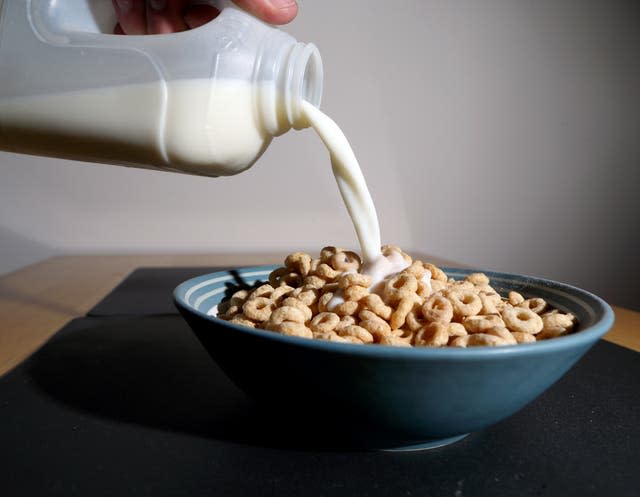Shareholders reject proposal to cut Nestle’s reliance on unhealthy products
Nestle’s shareholders have struck down a proposal which could have seen the KitKat and Nescafe maker reduce its reliance on unhealthy foods and cut back on the use of salt, sugar and fats.
The company had argued that there is “nothing wrong” with people enjoying “indulgent products” in moderation.
Some 88% of shareholders voted against the proposals, while 11% voted in favour, during the group’s annual general meeting (AGM) in Switzerland on Thursday. About 1% abstained from the vote.
Nestle was facing pressure from shareholder activists through a coalition led by responsible investment charity ShareAction.
The charity’s deputy chief executive, Simon Rawson, said: “While the majority of shareholders did not support the resolution, we hope that it has encouraged them to think about the public health impacts of their investments.”
The coalition was challenging Nestle to change its sales targets in order to promote healthier eating among consumers.
Its proposal would have seen the company report sales figures for food and drinks according to how healthy they are, based on internationally accepted standards of nutrition.
It also wanted Nestle to set targets to increase the proportion of sales that come from healthier products.
But the notion was rejected by the group’s shareholders who were able to vote on it during the AGM.
Nestle said that ShareAction was “targeting the wrong company” with the campaign, as it was already making progress with its health goals where other food manufacturers are not.
It also argued that setting targets on nutritious food sales would mean weakening other segments in its food and drink portfolio, which would allow rivals to step up who were less focused on healthy eating.

ShareAction’s Mr Rawson said: “While the vote we achieved today may be less than we wanted, the direction of travel is clear.
“Investors and consumers are recognising the importance of addressing the business risks and public health impacts of an industry that is heavily reliant on the sales of unhealthy food.
“They have growing expectations not only from Nestle but from all food manufacturers.”
He also argued that because the proposals required Nestle to amend its own rulebook, this element deterred some shareholders from voting in support of the notion.
More than 1,000 of Nestle’s shareholders attended the AGM in person.

 Yahoo News
Yahoo News 
